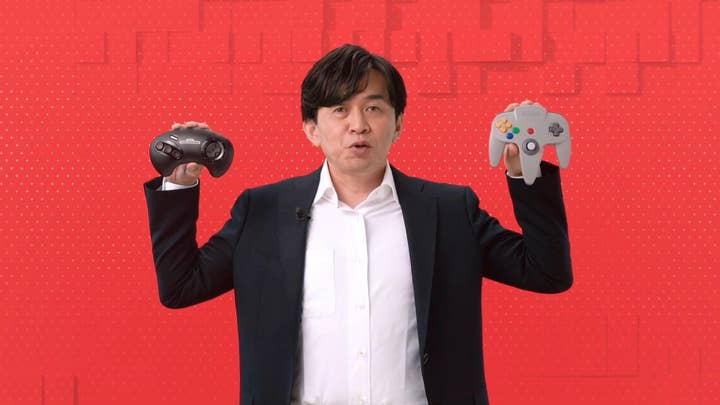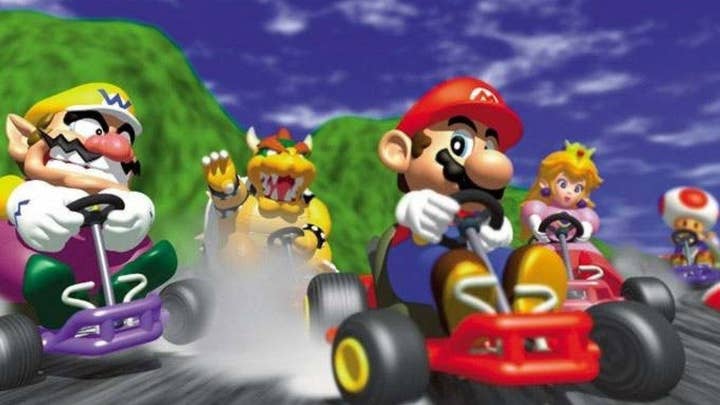Nintendo's approach to subscriptions is worth watching | Opinion
As Nintendo introduces Sky-like packages to its Online Service, could this help make games subs services more appealing?
For all the excitement around video game subscriptions, there is still an underlying nervousness over the impact it might have on the market, and its capacity to attract a mainstream audience.
Putting a game into something like Game Pass immediately puts you in front of millions of fans, and if you've got a way of monetising that audience, it could be potentially lucrative. What's more, if your game is a hit on a subs service, the word-of-mouth and coverage that can create may boost traditional sales of the title, particularly on other platforms.
There are clearly upsides. But what is it doing to the value perception of video games? Are we just turning our existing audience into one that's playing more games, but spending less? Xbox believes Game Pass can unlock new customers, but this isn't going to be an easy task.
People typically watch more TV shows than play games, and so a subscription may prove a harder sell amongst a mainstream audience
Game Pass, PS Now and its ilk are strong propositions for those hardcore gamers who play multiple titles a year. But according to Take-Two, the majority of its customers (including players of NBA2K and Grand Theft Auto Online) only play a handful of games a year.
Game Pass is often described as the 'Netflix of gaming', and although that's a nice shorthand for what Xbox is doing, video games and TV are very different mediums. We're used to subscribing for our TV, and whereas we can binge a season of Stranger Things in an evening, we can't do the same for something like Halo or FIFA. People typically watch more TV shows than play games, and so a subscription service for gaming may prove a harder sell amongst a more mainstream audience. If you only play a handful of games, why bother subscribing?
Last week Nintendo announced the next stage of its subscription offering. And I can't help but feel it's more affordable, accessible approach might be worth the attention of the other, bigger subscription players.
To be clear, Nintendo Switch Online is smaller and not as interesting as its competitors. It's not putting in new or recent games into its service (outside of the occasional Tetris 99 release), and is primarily focused on retro games and online play. It's nowhere near as expansive or ambitious as Game Pass or even PS Now.
The one positive about NSO is that it's a bit cleaner than Xbox and PlayStation's subscriptions solutions, primarily because it's arrived so much later. Xbox has two subscription services, its Gold service that enables online play and includes some free titles, and its Game Pass catalogue service. Sony has the same with its PlayStation Plus and PS Now offerings. The various offerings play slightly different roles, but they do overlap and it can look a little complex to those outside of the console bubble.

Nintendo doesn't have the headache of trying to distinguish (and potentially unite) two subscription services. Nevertheless, last week it did complicate matters by proposing a second tier to Nintendo Switch Online. The second tier is billed as an 'expansion pack', which contains even more games from different retro consoles (namely the N64 and the Sega Genesis/Megadrive).
This expansion runs counter to what the likes of Netflix are doing, which is continually adding to the core proposition and increasing that value perception over time
Having a second tier isn't especially radical. Xbox has Game Pass tiers (one with Gold included and one without). And TV has been doing this for decades. Subscribers to cable or satellite TV are used to buying a base package and then bolting on other channels, whether that's Sports, Movies, and so on. What Nintendo is doing is similar, only with different sets of games from different platforms.
What Nintendo has now is a base $20/£18 Switch Online service, which is the most affordable out of all the console options out there. It costs less than a drink a month. And for the more dedicated users, they can 'upgrade' their package with additional games. In the future, it's likely Nintendo will add even more platforms, and not just from its own history. And what's to stop Netflix being a bolt-on option? Or Disney Plus? Or even Xbox Game Pass?
I'm getting ahead of myself, of course. This is Nintendo we're talking about, not Sky. But it's a model that could well work for one of the other competitors.
Commentators will rightly point out that this expansion solution runs counter to what the likes of Netflix are doing, which is continually adding to the core proposition and increasing that value perception over time. The more variety and shows that Netflix or Disney Plus can deliver, the bigger its audience will become and the more likely that they'll stay around.
Yet as we've established, games are not TV. Most games are long, sometimes years long, they're sticky and it's not unusual to have gamers who might play nothing but GTA Online or Fortnite or FIFA or Call of Duty. There is clearly a big audience where subscriptions can make a lot sense, but there's also a large number of players where paying monthly to access hundreds of titles just doesn't make sense.
But how can the industry make it make sense? How does it turn those gamers into more regular players, who will experience more things and discover new games?
Perhaps a more simplistic, streamlined, cheaper base package, with the ability to upgrade, isn't such an unusual idea after all.

